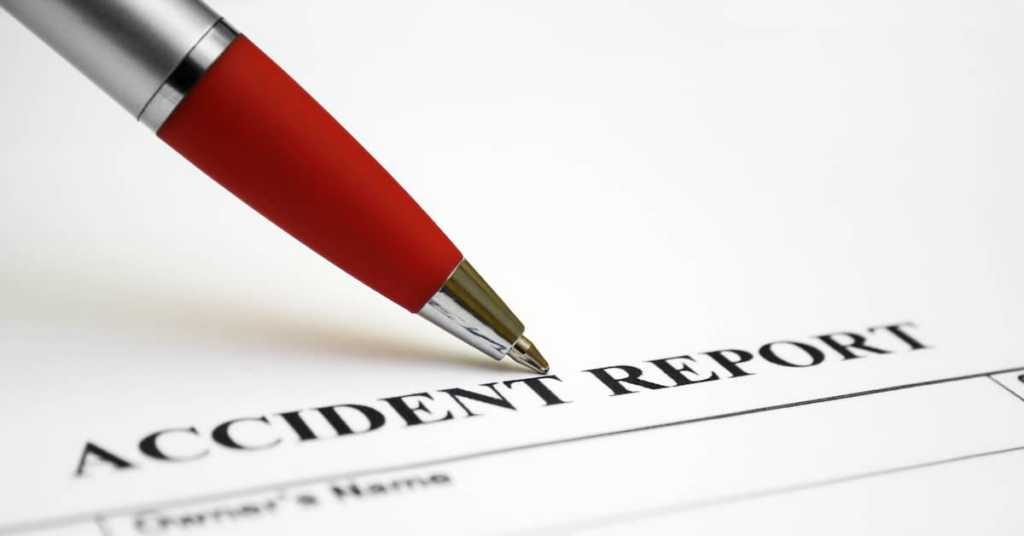
An accident information report is a key component of any car accident claim. The official police report creates a record of the accident and summarizes a number of key facts involved.
Oftentimes motorists will be able to report the accident themselves (usually by calling 911 at the scene and providing a statement to the police officer who responds). However, if you were unable to report the accident immediately (e.g., you had to be transported to the hospital for your injuries) or you are concerned about protecting your rights, it may be in your interest to speak to a car accident lawyer in Connecticut.
The Flood Law Firm can ensure that the accident is properly reported to the authorities and your right to compensation is preserved at every stage in your case. Please call (860) 346-2695 today for a FREE consultation.
Reporting a Car Accident in Connecticut
If you have never been in an accident before, the prospect of reporting it to the police may seem daunting. What if you say the wrong thing, or fail to provide all of the necessary information?
Thankfully, the accident information report is relatively straightforward. Whether you talk to the police at the scene or report the accident at a later date, you will need to provide the following information:
Basic Details About the Accident
First, the officer will take down basic information about the crash. This includes:
- The date of the accident
- Where the accident occurred (i.e., the street, intersection, mile marker, etc.)
- The approximate time of the accident
Identifying Information
All parties to the accident need to be identified. The police officer will obtain the following from each of the drivers:
- Name
- Address
- Contact information
- License plate number
- Proof of insurance and coverage information
If there are any witnesses to the accident, the officer will also get their statements and contact details. You should speak to these witnesses and get their information, too, as their testimony may support your claim against the other driver.
Damage to the Vehicle(s)
The location of vehicle damage in a car accident can tell a lot about who was at fault for the crash. For example, damage to the back end of one vehicle and corresponding damage to the front of another vehicle is generally indicative of a rear-end collision.
If law enforcement responds to the scene, the officer will examine the vehicles and make note of any damage. But, if the accident is not promptly reported, you will need to document the damage yourself. Taking photos at the scene is the best way to record the location of any damage to your car and the other vehicle(s) involved.
Conditions at the Scene
An accident information report also needs to include relevant details concerning factors that may have contributed to the collision. This includes:
- Weather conditions at the time of the accident
- Lighting and visibility conditions
- The condition of the road surface
Without an accident report, the other driver could try to argue that factors outside of their control (such as bad weather, poor visibility, etc.) led to the accident. Accurately documenting conditions at the scene (both on your own and in the police report) can help prove liability and enable you to hold the other driver accountable.
Injuries
The injuries sustained in a car accident are not always immediately apparent. When speaking to the police officer at the scene, be honest about any pain or discomfort you are feeling. You should then see a doctor immediately for proper diagnosis.
If the accident report does not mention any injuries but you later make a personal injury claim against the other driver, the insurance company will likely seize upon the lack of documentation to dispute liability. Therefore, except in the case of a very minor accident, you should not tell the other driver, the police officer, or anyone else that you feel fine or that you don’t think you are hurt. Leave that determination to the medical professionals.
How Long Do I Have to Report a Car Accident in Connecticut?
Car accidents should be reported to the police as soon as possible. If the accident resulted in injury, death, or more than $1,000 in property damage, it must be reported no more than 5 days after the fact (see Connecticut General Statutes § 14-108a).
How to Get a Copy of the Accident Information Report
The parties involved in a car accident can get a preliminary Accident Information Summary from the Connecticut Department of Emergency Services and Public Protection (DESPP). For up to 30 days following the crash, you can access the Accident Information Summary for free by visiting the online DESPP portal and providing the required information.
Complete accident reports are generally available within 5 to 10 days of the accident. The DESPP lists multiple options for obtaining a copy of the report (you will be charged a fee of $16). Alternatively, you can visit the website for the jurisdiction in which the accident occurred and follow the directions for requesting a copy of the report. Examples can be found at the following websites:
- The City of Middletown, Connecticut
- The Waterbury Police Department
- The Danbury Police Department's online crash report portal
- The Records/Property Division for the City of Bridgeport, Connecticut
- Hartford Police Department Records Division
Why You Need an Accident Information Report
In addition to the information described above, the police report typically includes a diagram illustrating the accident, a preliminary opinion as to the cause of the accident and who is at fault, and any citations issued. All of this information can be used to help establish liability and prove your case against the other driver.
The Flood Law Firm can obtain a copy of the accident report on your behalf. Our lawyers will ensure that all of the information is accurate, as well as gather additional evidence to strengthen your claim. We will thoroughly prepare your case and negotiate a favorable settlement with the insurance company or, if necessary, file a lawsuit and take your case to trial.
Our Results Speak for Themselves.
With offices in Middletown, Danbury, Waterbury, and Bridgeport, our firm handles car accident claims throughout Connecticut. Contact The Flood Law Firm today for a FREE consultation.
